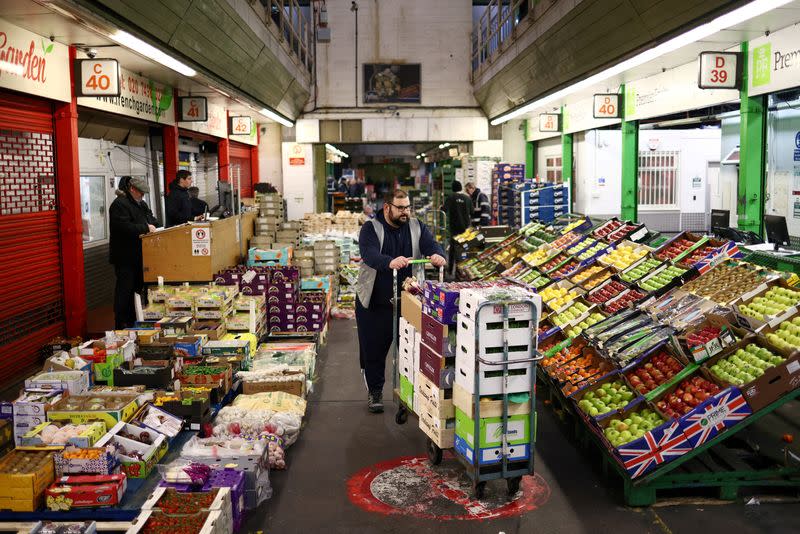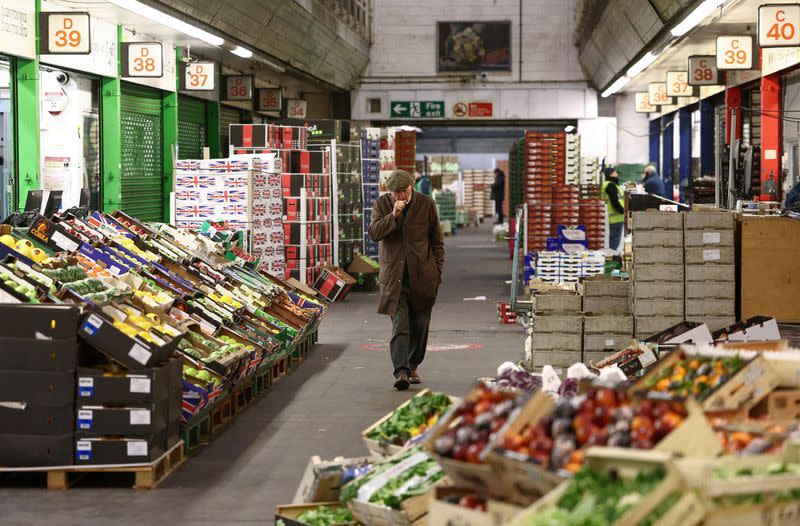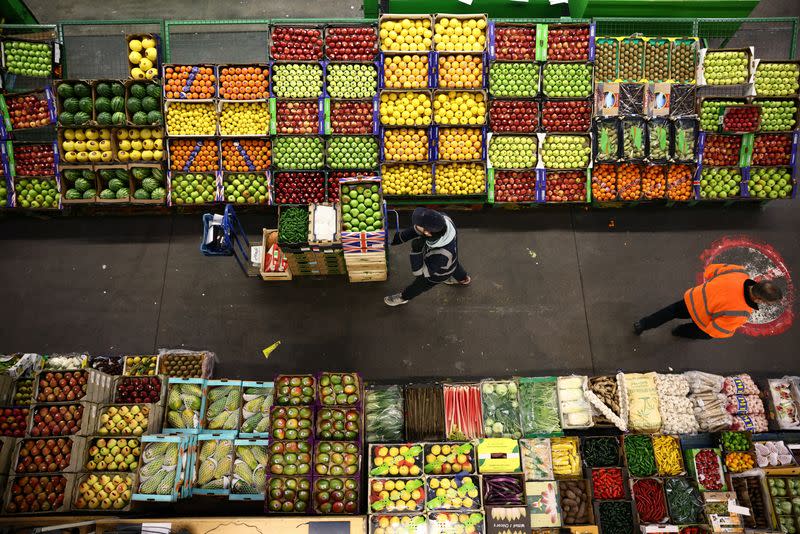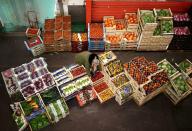UK's Asda and Morrisons relax salad vegetable rationing
LONDON (Reuters) - British supermarket groups have started to remove some of their customer purchase limits on salad vegetables and fruit after weeks of shortages and empty shelves.
A hit to imports from disrupted harvests in southern Europe and north Africa due to unseasonal weather has been exacerbated by British farmers planting fewer crops under glass due to still high energy prices.
Last month, market leader Tesco, Asda, Morrisons, Aldi and Lidl imposed limits on how many salad and fruit items shoppers could buy at one time and the government warned that shortages could last until the end of March.
However, Asda has removed limits on shoppers buying cucumbers, lettuce, salad bags, broccoli, cauliflower and raspberries.
As of Thursday, Asda was still limiting customers to a maximum of three packets of tomatoes and peppers.
But it said supply of these two products was also improving and it expected to be back to normal levels within a couple of weeks.
Morrisons has also removed a purchase limit on cucumbers but still has a cap of two items per customer across tomatoes, lettuce and peppers.
Growers have said, however, they expect some shortages to persist into April.
(Reporting by James Davey, Editing by Nick Zieminski)

 Yahoo Finance
Yahoo Finance 











